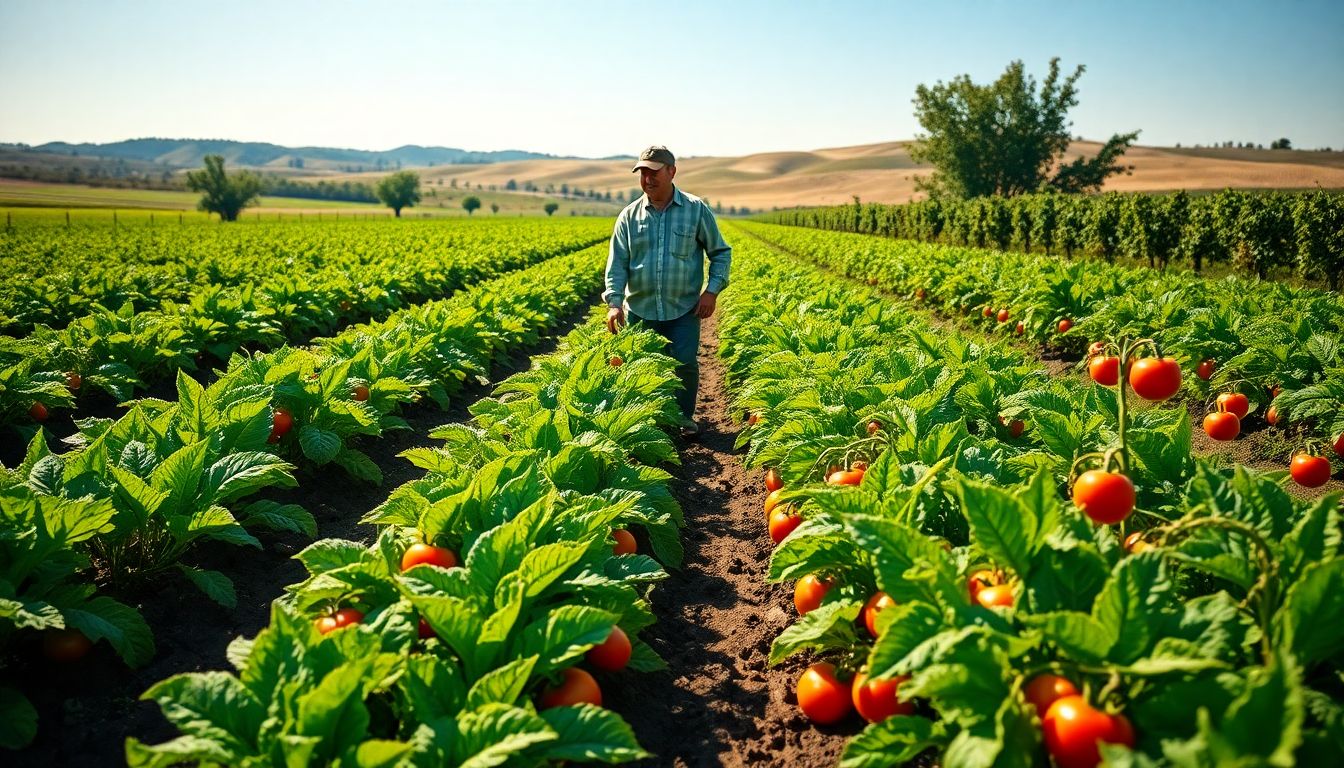There is more than $60 billion in organic food sales in the United States today. This denotes a massive shift toward better health and greener diets. Organic farming refers to the cultivation of natural foods. This includes ensuring that the soil stays healthy; that there is a very diverse plant and animal arrangement; and reduction in the amount of artificial things used. Organic farming provides an opportunity for making better nowadays for all people in USA. Let’s understand how!
Understanding Organic Farming Practices
Organic farming methodologies are earth-sustaining forms of farming. Keeping up a healthy environment sustains a healthy food growth.
Soil Management Techniques
Soil is very important in organic farming. Fertility maintenance and soil crop cover, composting, crop rotation are methods integrated and allied to provide healthy soil to farming.
Pest and Weed Management
Clever organic farmers have many tricks under their sleeves when it comes to pest management as well as weed management. They can release insect-eating insect types to keep the population of those harmful insects low by these lovely bugs! Another way may be to use some organic-sourced soaps or sprays. They are safer than potent chemicals and targeted, rather than using very damaging organic farming methods.
Water Conservation Techniques
Saving water is a major activity of organic farming. Drip irrigation, for example, sends the water down to the roots of the plants so that no extra water is wasted. Even rainwater is harvested to be used whenever it is needed. They plan their cropping patterns very carefully to save all their water. These things help save water and keep the farm healthy.
Advantages of Organic Farming
Organic farming is widely regarded as an answer to many problems. It promises environmental sustainability, cools and consumer healthy living, and even provides solutions for many farmers. Let us go through some of the benefits now!
Environmental Benefits
Organic farms are a boon for the earth. They are not highly productive in terms of pesticides, therefore contributing to less environmental pollution. They save a lot of water. Organic farms are very friendly with respect to wildlife too, providing safe havens for their living. These all promote earth protection.
Consumer Health Benefits
Organofood is good for one’s health. There are low levels of pesticides in organic foods. Some studies have even proved that organic grows tend to accumulate higher nutrients. Organic eating is cleaner than others. Hence, organic eating is simply defined as eating healthy.
Economic Benefits of Organic Farming to Farmers
Organic farming would enable farmers to shop much better. They generally fetch a higher price for their produce. Organic farmers save on chemical inputs, besides enjoying an outlet into specific markets that require organic produce.
Challenges of Organic Farmers in the USA
There are challenges that the new entrants face into organic farming with its merits, such as constructs that need to be put in place by government policies, costs, and even the perception of society. Let’s take a tour and check it out.
Costs for Certification and Regulatory Compliance
The certification process, from a technical perspective, is just a way for the organic farmer to prove that he is in compliance with certain standards. The USDA is very stringent on the requirements for organic farms. The certification process can be expensive; compliance is time-consuming.
Market Access and Consumer Education
Sometimes, the lowest barriers in selling products exist for organic producers. They must find customers who are willing to buy organic. To impart the values of organic produce in people’s minds becomes another important link. They are bound to buy organic if they are made to understand its worth.
Production Costs and Yields
The cultivation of organic food in itself is a major concern. At times organic farms may not yield more than their counterparts. The cost of organic food cultivation is high. Farmers keep on working towards newer techniques for more organic production.
Future of Organic Farming in the USA
Organic farming is intensively expanding, with the fostering of technology, support from the government, and shoppers’. What will this put on?
Technological Advancements
Organic farmers are now being empowered by technology. Precision farming uses data to assist in making better decisions. Data analysis helps farmers figure out what works for them and what does not, increasing the production of crops.
Policy and Government Support
Governments can support organic farming by funding research. Or they may lay down regulations that uphold organic farm interests. These programs assist in the continuation of organic farming.
Consumer Demand and Market Trends
Consumers are increasingly wanting to purchase organic food. They are the health-conscious and environmentally conscious. This demand increases the organic sector. More people are buying organic, and more farmers are converting to organic farming.
Conclusion
Altogether, organic farming can provide a path towards a farming system that is better for everyone; it nurtures the environment, gives consumers food that is healthy, and can assure farmer livelihood. There are problems that need to be solved, but the outlook remains positive. Support organic farmers and buy organic products when you can. Every little bit helps!

